| 2024 |
 |
Karpoori Thakur , (
Bihar )
Note:
Thakur was a politician, who served two terms as the 11th Chief Minister of Bihar, from 1970 to 1971, and from 1977 to 1979. In 1978, he introduced the reservation policy in state government jobs. |
| 2024 |
 |
Lal Krishna Advani , (
Delhi )
Note:
Advani is a politician who served as the 7th Deputy Prime Minister of India from 2002 to 2004. He is one of the co-founders of Bharatiya Janata Party and is credited with scripting the rise of the BJP as a major political force through the Ram Janmabhoomi Movement. He is popularly known as "Loh Purush" (Iron Man). |
| 2024 |
 |
Pamulaparthi Venkata Narasimha Rao , (
Telangana )
Note:
Narasimha Rao, was an Indian lawyer and politician who served as the 9th prime minister from 1991 to 1996. He was the first Prime Minister from South India. He is known for introducing various liberal reforms to India's economy. |
| 2024 |
 |
Chaudhary Charan Singh , (
Uttar Pradesh )
Note:
Charan Singh was an Indian politician and a independence activist who served as the 5th prime minister from 1979 to 1980. He is known as the "Champion of India's peasants". He is credited for bringing radical land reform measures and bringing uniformity in the farm sector. These reforms were implemented through the Debt Redemption Bill, the Land Holding Act, and the Zamindari Abolition Act. He was the founder of the political party Lokdal in 1980. |
| 2024 |
 |
Mankombu Sambasivan Swaminathan , (
Tamil Nadu )
Note:
Swaminathan was an Indian agronomist, geneticist and administrator, who was as a global leader of the green revolution. He was one of the major architects of green revolution in India known for his leadership and role in introducing and further developing high-yielding varieties of wheat and rice. |
| 2019 |
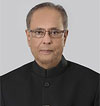 |
Pranab Mukherjee , (
West Bengal )
Note:
Mukherjee is an Indian politician who served as the 13th President of India from 2012 until 2017. In a political career spanning five decades, Mukherjee has been a senior leader in the Indian National Congress and has occupied several ministerial portfolios in the Government of India. Prior to his election as President, he was Union Finance Minister from 2009 to 2012. |
| 2019 |
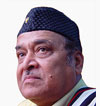 |
Bhupen Hazarika , (
Assam )
Note:
Hazarika (8 September 1926 – 5 November 2011) was an Indian playback singer, lyricist, musician, poet and film-maker from Assam, widely known as Sudhakantha. His songs, written and sung mainly in the Assamese language by himself, are marked by humanity and universal brotherhood and have been translated and sung in many languages, most notably in Bengali and Hindi. |
| 2019 |
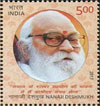 |
Nanaji Deshmukh , (
Maharashtra )
Note:
Chandikadas Amritrao Deshmukh also known as Nanaji Deshmukh (11 October 1916 – 27 February 2010) was a social activist from India. He worked in the fields of education, health, and rural self-reliance. He was a leader of the Bharatiya Jana Sangh and also a member of the Rajya Sabha. |
| 2015 |
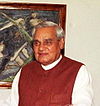 |
Atal Bihari Vajpayee , (
Gwalior State )
Note:
Parliamentarian for over four decades, Vajpayee was elected nine times to the Lok Sabha, twice to the Rajya Sabha and served as the Prime Minister of India for three terms; 1996, 1998, 1999-2004. He was Minister of External Affairs during 1977-79 and was awarded as the "Best Parliamentarian" in 1994. |
| 2015 |
 |
Madan Mohan Malaviya , (
Allahabad, India )
Note:
Scholar and educational reformer Malaviya is a founder of Akhil Bharatiya Hindu Mahasabha (1906) and Banaras Hindu University and served as the university's vice-chancellor from 1919 till 1938. He was the President of Indian National Congress for four terms and was the Chairman of Hindustan Times from 1924 to 1946. |
| 2014 |
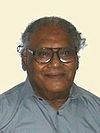 |
Chintamani Nagesa Ramachandra Rao , (
Bangalore, Karnataka )
Note:
The recipient of Honorary Doctorates from 63 Universities including Purdue, IIT Bombay, Oxford, chemist and professor Rao has worked prominently in the fields of Solid State and Materials Chemistry, Spectroscopy and Molecular Structure. He has authored around 1600 research papers and 48 books. |
| 2014 |
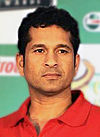 |
Sachin Ramesh Tendulkar , (
Bombay, Maharashtra )
Note:
Having debuted in 1989, Tendulkar played 664 international cricket matches in a career spanned over two decades. He holds various cricket records including the only player to have scored one hundred international centuries, the first batsman to score a double century in a One Day International and the only player to complete more than 30,000 runs in both ODI and Test cricket. |
| 2009 |
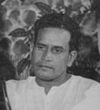 |
Pandit Bhimsen Gururaj Joshi , (
Gadag, Karnataka )
Note:
Hindustani classical vocalist, Joshi was a disciple of Kirana gharana, an Indian musical school. He is widely known for the Khyal genre of singing with a "mastery over rhythm and accurate notes". |
| 2001 |
 |
Lata Mangeshkar , (
Maharashtra )
Note:
Widely credited as the "nightingale of India", playback singer Mangeshkar started her career in the 1940s and has sung songs in over 36 languages. In 1989, Mangeshkar was awarded the Dadasaheb Phalke Award, India's highest award in cinema. |
| 2001 |
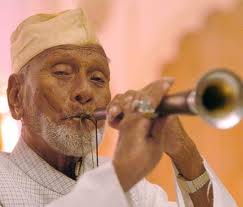 |
Ustad Bismillah Khan , (
Uttar Pradesh )
Note:
Hindustani classical shehnai player, Khan played the instrument for more than eight decades and is credited to have bought the instrument to the centre stage of Indian music. |
| 1999 |
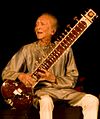 |
Ravi Shankar , (
west bengal )
Note:
Winner of four Grammy Awards and often considered as "the world's best-known exponent of Hindustani classical music", sitar player Shankar is known for his collaborative work with Western musicians including Yehudi Menuhin and George Harrison. |
| 1999 |
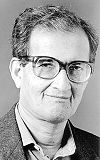 |
Amartya Sen , (
West Bengal )
Note:
Winner of the Nobel Prize in Economic Sciences (1998), Sen has done research over several topics including social choice theory, ethics and political philosophy, welfare economics, decision theory, development economics, public health, and gender studies. |
| 1999 |
 |
Gopinath Bordoloi , (
Assam )
Note:
Independence activist Bordoloi is the first Chief Minister of Assam (1946–50). His efforts and association with the then Minister of Home Affairs Vallabhbhai Patel were widely acknowledged while keeping a Assam united with India when parts of it were to merge with East Pakistan. |
| 1998 |
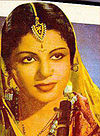 |
M. S. Subbulakshmi , (
Tamil Nadu )
Note:
Carnatic classical vocalist Subbulakshmi, often hailed as "Queen of songs", is the first Indian musician to receive the Ramon Magsaysay award. |
| 1998 |
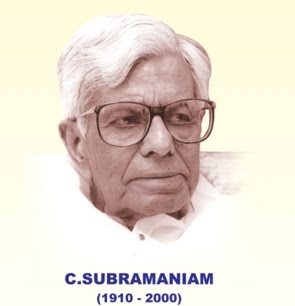 |
Chidambaram Subramaniam , (
Tamil Nadu )
Note:
Independence activist and former Minister of Agriculture of India (1964–66), Subramaniam is known for his contribution towards Green Revolution in India. During the late 1970s, he worked for International Rice Research Institute, Manila, and the International Maize and Wheat Research Institute, Mexico. |
| 1998 |
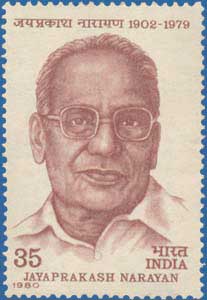 |
Jayaprakash Narayan , (
Uttar Pradesh )
Note:
Independence activist, social reformer, and commonly referred as "Lok Nayak" ("People's Hero"), Narayan is better known for "Total Revolution Movement" or "JP Movement" initiated during the mid-1970s to "overthrow the corrupt and exploitative Congress government". |
| 1997 |
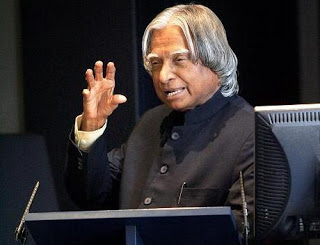 |
Avul Pakir Jainulabdeen Abdul Kalam , (
Tamil Nadu )
Note:
Aerospace and defence scientist, Kalam was involved in the development of India's first satellite launch vehicle SLV III and was the architect of Integrated Guided Missile Development Program. He worked for Indian National Committee for Space Research, Indian Space Research Organisation, Defence Research and Development Laboratory and was appointed as the Scientific Advisor to the Defence Minister, Secretary to Department of Defence Research and Development and Director General of Defence Research and Development Organisation. Later, he served as the eleventh President of India from 2002 till 2007. |
| 1997 |
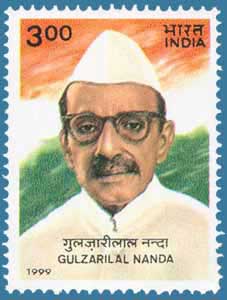 |
Gulzarilal Nanda , (
Punjab )
Note:
Independence activist Nanda was two times interim Prime Minister of India (1964, 1966) and two times deputy chairman of the Planning Commission. |
| 1997 |
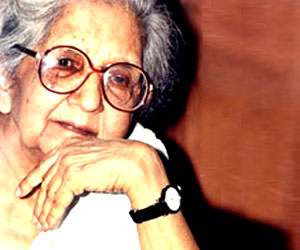 |
Aruna Asaf Ali , (
West Bengal )
Note:
Independence activist Ali is better known for hoisting the Indian flag in Bombay during the Quit India Movement in 1942. Post Independence, Ali was elected as Delhi's first mayor in 1958. |
| 1992 |
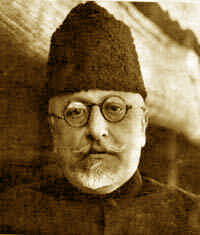 |
Maulana Abul Kalam Azad , (
West Bengal )
Note:
Independence activist Azad was India's first Minister of Education and worked towards free primary education. He was widely known as "Maulana Azad" and his birthday on 11 November is observed as National Education Day in India. |
| 1992 |
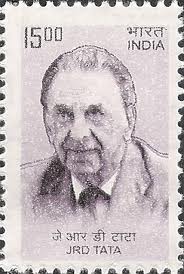 |
Jehangir Ratanji Dadabhoy Tata , (
Maharashtra )
Note:
Industrialist, philanthropist, and aviation pioneer, Tata founded India's first airline Air India. He is the founder of various institutes including Tata Institute of Fundamental Research, Tata Memorial Hospital, Tata Institute of Social Sciences, Tata Motors, TCS, National Institute of Advanced Studies, and National Centre for the Performing Arts. |
| 1992 |
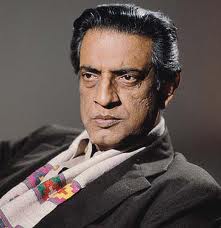 |
Satyajit Ray , (
West Bengal )
Note:
Having debuted as a director with Pather Panchali (1955), film-maker Ray is credited with bringing world recognition to Indian cinema. In 1984, Ray was awarded the Dadasaheb Phalke Award, India's highest award in cinema. |
| 1991 |
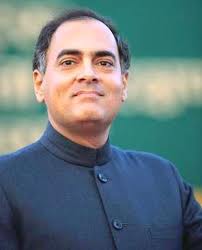 |
Rajiv Gandhi , (
New Delhi )
Note:
Gandhi was the ninth Prime Minister of India serving from 1984 to 1989. |
| 1991 |
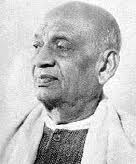 |
Sardar Vallabhbhai Patel , (
Gujarat )
Note:
Widely known as the "Iron Man of India", Patel was an independence activist and first Deputy Prime Minister of India (1947–50). Post independence, "Sardar" ("Leader") Patel worked with V. P. Menon towards dissolving 555 princely states into the Indian union. |
| 1991 |
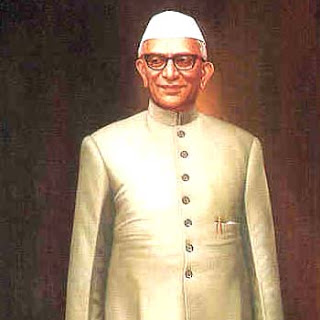 |
Morarji Desai , (
Gujarat )
Note:
Independence activist Desai was the sixth Prime Minister of India (1977–79). He is the only Indian national to be awarded the Nishan-e-Pakistan, highest civilian award given by the Government of Pakistan. |
| 1990 |
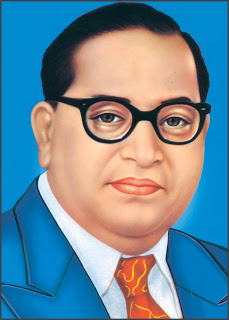 |
Bhimrao Ramji Ambedkar , (
Maharashtra )
Note:
Social reformer and leader of the Dalits ("Untouchables"), Ambedkar was the Chief architect of the Indian Constitution and also served as the first Law Minister of India. Ambedkar predominantly campaigned against the social discrimination with Dalits, the Hindu varna system. He was associated with the Dalit Buddhist movement and accepted Buddhism as a religion along with his close to half a million followers on 14 October 1956. |
| 1990 |
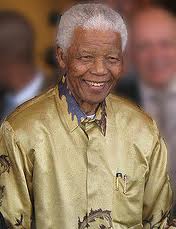 |
Nelson Mandela , (
South Africa )
Note:
Leader of the Anti-Apartheid Movement in South Africa, Mandela was the President of South Africa (1994–99).Often called as the "Gandhi of South Africa", Mandela's African National Congress movement was influenced by Gandhian philosophy. In 1993, he was awarded the Nobel Peace Prize. |
| 1988 |
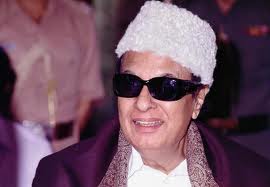 |
Marudhur Gopalan Ramachandran , (
Tamil Nadu )
Note:
Actor turned politician Ramachandran served as Chief Minister of Tamil Nadu for three terms; 1977–80, 1980–84, 1985–87. |
| 1987 |
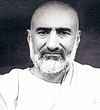 |
Khan Abdul Ghaffar Khan , (
Pakistan )
Note:
Widely known as "Frontier Gandhi", independence activist and Pashtun leader Khan was a follower of Mahatma Gandhi. He joined Khilafat Movement in 1920 and founded Khudai Khidmatgar ("Red Shirt movement") in 1929. |
| 1983 |
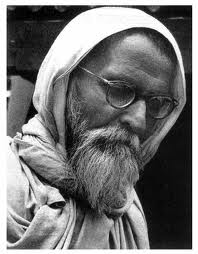 |
Acharya Vinoba Bhave , (
Maharashtra )
Note:
Independence activist, social reformer, and a close associate of Mahatma Gandhi, Bhave is best known for his Bhoodan movement, "Land-Gift Movement".He was given the honorific title "Acharya" ("teacher") and was awarded the Ramon Magsaysay Award (1958) for his humanitarian work. |
| 1980 |
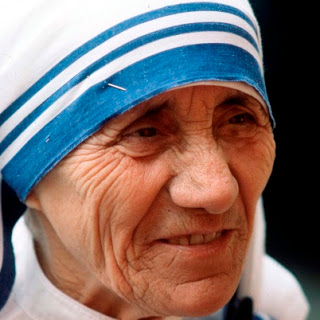 |
Agnes Gonxha Bojaxhiu (Mother Teresa) , (
West Bengal )
Note:
"Blessed Mother Teresa of Calcutta" was a catholic nun and the founder of the Missionaries of Charity. She was awarded the Nobel Peace Prize for her humanitarian work in 1979 and was beatified on 19 October 2003 by Pope John Paul II. |
| 1976 |
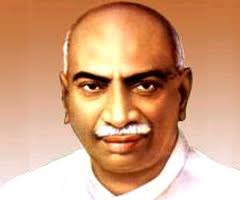 |
Kumarasami Kamaraj , (
Tamil Nadu )
Note:
Independence activist and statesman Kamaraj was a former Chief Minister of Tamil Nadu for three terms; 1954–57, 1957–62, and 1962–63. |
| 1975 |
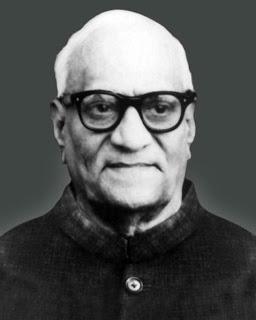 |
Varahagiri Venkata Giri , (
Andhra Pradesh )
Note:
Trade unionist Giri was the first Acting President of India and later elected as the fourth President of India (1969–74). |
| 1971 |
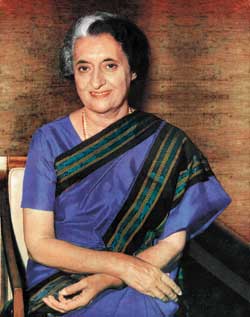 |
Indira Gandhi , (
Uttar Pradesh )
Note:
Known as the "Iron Lady of India", Gandhi was the Prime Minister of India during 1966–77 and 1980–84. During the Indo-Pakistani War of 1971, her government supported Bangladesh Liberation War which led to the formation of a new country, Bangladesh. |
| 1966 |
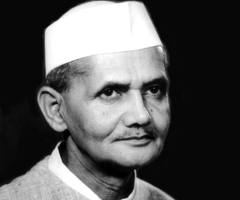 |
Lal Bahadur Shastri , (
Uttar Pradesh )
Note:
Known for his slogan "Jai Jawan Jai Kisan" ("Hail the Soldier, Hail the Farmer"),Independence activist Shastri served as second Prime Minister of India (1964–66) and led the country during the Indo-Pakistani War of 1965. |
| 1963 |
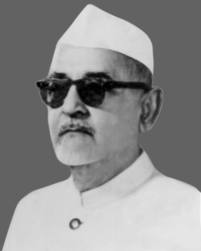 |
Zakir Hussain , (
Andhra Pradesh )
Note:
Former President, ScholarIndependence activist and education philosopher, Husain served as a Vice Chancellor of Aligarh Muslim University (1948–56) and the Governor of Bihar (1957–62). Later, he was elected as second Vice-President of India (1962–67) and went on to become the third President of India (1967–69). |
| 1963 |
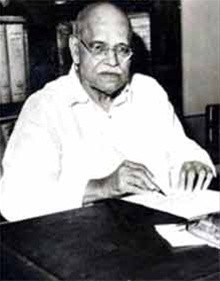 |
Pandurang Vaman Kane , (
Maharashtra )
Note:
Indologist and Sanskrit scholar, Kane is best known for his five volume literary work, History of Dharmasastra: Ancient and Medieval Religious and Civil Law in India; the "monumental" work that extends over nearly 6,500 pages and being published from 1930 to 1962. |
| 1962 |
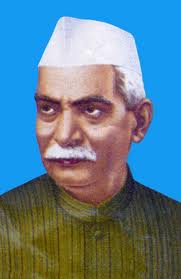 |
Rajendra Prasad , (
Bihar )
Note:
Independence activist, lawyer, statesman, and scholar, Prasad was closely associated with Mahatma Gandhi in the non-cooperation movement for Indian independence.He was later elected as the first President of India (1950–62). |
| 1961 |
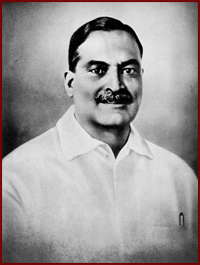 |
Bidhan Chandra Roy , (
West Bengal )
Note:
A physician, political leader, philanthropist, educationist, and social worker, Roy is often considered as "Maker of Modern West Bengal". He was second Chief Minister of West Bengal (1948–62) and his birthday on 1 July is observed as National Doctors' Day in India. |
| 1961 |
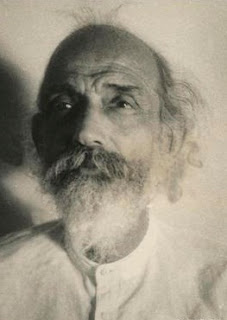 |
Purushottam Das Tandon , (
Uttar Pradesh )
Note:
Often titled as "Rajarshi", Tandon was an independence activist and served as speaker of the Uttar Pradesh Legislative Assembly (1937–50). He was actively involved in a campaign to get official language status to Hindi. |
| 1958 |
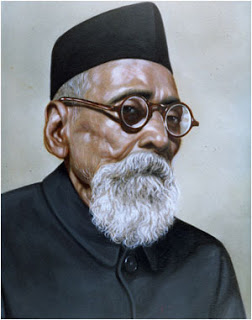 |
Dhondo Keshav Karve , (
Maharashtra )
Note:
Social reformer and educator, Karve is widely known for his works related to woman education and remarriage of Hindu widows. He established the Widow Marriage Association (1983), Hindu Widows Home (1896), and started Shreemati Nathibai Damodar Thackersey Women's University in 1916. |
| 1957 |
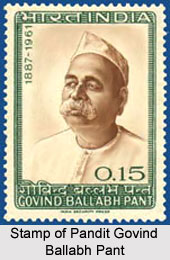 |
Govind Ballabh Pant , (
Uttar Pradesh )
Note:
Independence activist Pant was premier of United Provinces (1937–39, 1946–50) and first Chief Minister of Uttar Pradesh (1950–54). He served as Union Home Minister from 1955-1961. |
| 1955 |
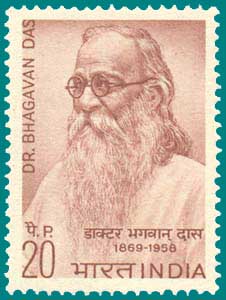 |
Bhagwan Das , (
Uttar Pradesh )
Note:
Independence activist, philosopher, and educationist, Das is a co-founder of Mahatma Gandhi Kashi Vidyapith and worked with Madan Mohan Malaviya for the foundation of Banaras Hindu University. |
| 1955 |
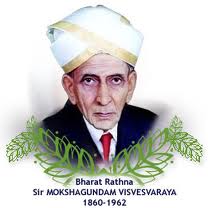 |
Mokshagundam Visvesvarayya , (
Karnataka )
Note:
Civil engineer, statesman, and Diwan of Mysore (1912–18), Visvesvaraya was a Knight Commander of the Order of the Indian Empire. His birthday, 15 September, is observed as "Engineer's Day" in India. |
| 1955 |
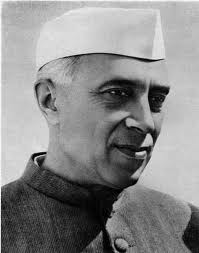 |
Jawaharlal Nehru , (
Uttar Pradesh )
Note:
Independence activist and author, Nehru is the first and the longest-serving Prime Minister of India (1947–64). |
| 1954 |
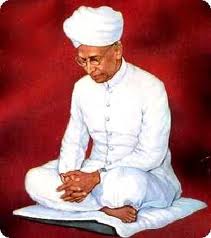 |
Sarvepalli Radhakrishnan , (
Tamil Nadu )
Note:
Philosopher Radhakrishnan served as India's first Vice-President (1952–62) and second President (1962–67). Since 1962, his birthday on 5 September is observed as "Teachers' Day" in India. |
| 1954 |
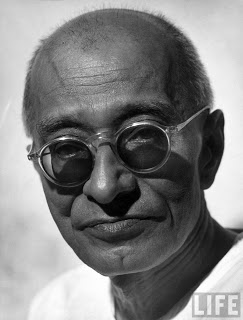 |
Chakravarti Rajagopalachari , (
Tamil Nadu )
Note:
An Indian independence activist, statesman, and lawyer, Rajagopalachari was the only Indian and last Governor-General of independent India. He was Chief Minister of Madras Presidency (1937–39) and Madras State (1952–54); and founder of Indian political party Swatantra Party. |
| 1954 |
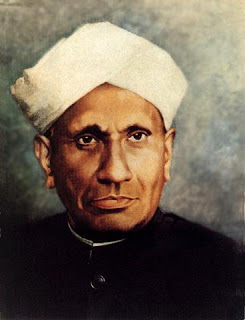 |
Chandrasekhara Venkata Raman , (
Tamil Nadu )
Note:
Widely known for his work on the scattering of light and the discovery of the effect, better known as "Raman scattering", Raman mainly worked in the field of atomic physics and electromagnetism and was presented Nobel Prize in Physics in 1930. |





















































